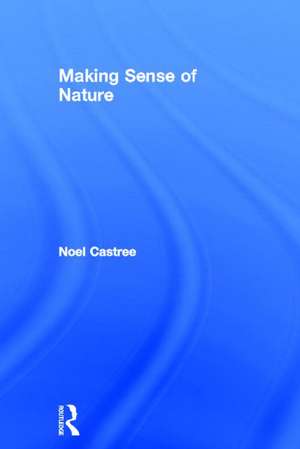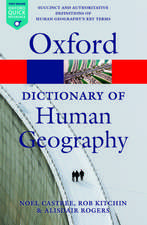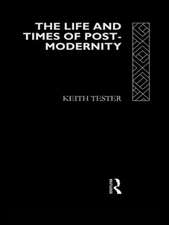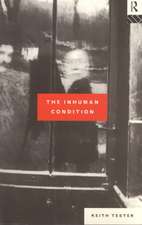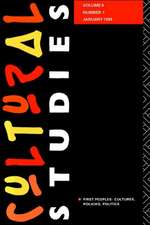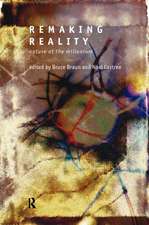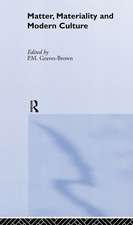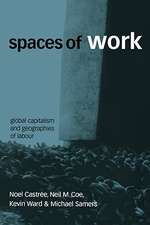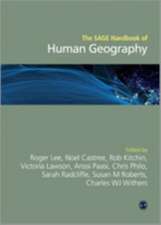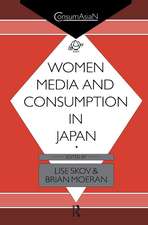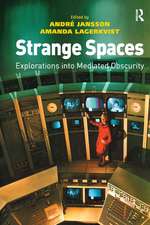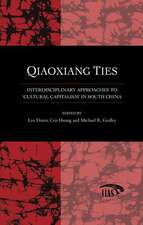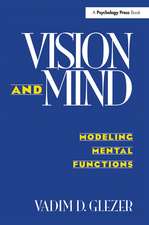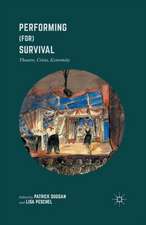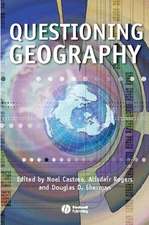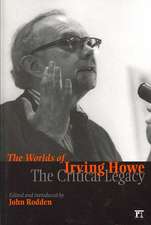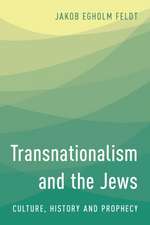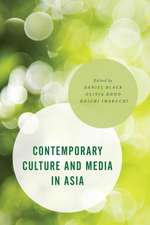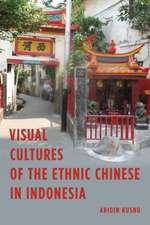Making Sense of Nature
Autor Noel Castreeen Limba Engleză Hardback – aug 2013
Making Sense of Nature shows that what we call ‘nature’ is made sense of for us in ways that make it central to social order, social change and social dissent. By utilising insights and extended examples from anthropology, cultural studies, human geography, philosophy, politics, sociology, science studies, this interdisciplinary text asks whether we can better make sense of nature for ourselves, and thus participate more meaningfully in momentous decisions about the future of life – human and non-human – on the planet. This book shows how ‘nature’ can be made sense of without presuming its naturalness. The challenge is not so much to rid ourselves of the idea of nature and its ‘collateral concepts’ (such as genes) but instead, we need to be more alert to how, why and with what effects ideas about ‘nature’ get fashioned and deployed in specific situations. Among other things, the book deals with science and scientists, the mass media and journalists, ecotourism, literature and cinema, environmentalists, advertising and big business.
This innovative text contains numerous case studies and examples from daily life to put theory and subject matter into context, as well as study tasks, a glossary and suggested further reading. The case studies cover a range of topics, range from forestry in Canada and Guinea, to bestiality in Washington State, to how human genetics is reported in Western newspapers, to participatory science experiments in the UK. Making Sense of Nature will empower readers from a wide range of fields across the social sciences, humanities and physical sciences.
| Toate formatele și edițiile | Preț | Express |
|---|---|---|
| Paperback (1) | 330.50 lei 6-8 săpt. | |
| Taylor & Francis – 31 iul 2013 | 330.50 lei 6-8 săpt. | |
| Hardback (1) | 994.23 lei 6-8 săpt. | |
| Taylor & Francis – aug 2013 | 994.23 lei 6-8 săpt. |
Preț: 994.23 lei
Preț vechi: 1333.16 lei
-25% Nou
Puncte Express: 1491
Preț estimativ în valută:
190.31€ • 206.78$ • 159.96£
190.31€ • 206.78$ • 159.96£
Carte tipărită la comandă
Livrare economică 21 aprilie-05 mai
Preluare comenzi: 021 569.72.76
Specificații
ISBN-13: 9780415545488
ISBN-10: 041554548X
Pagini: 374
Ilustrații: 27 b/w images, 1 table, 14 halftones and 13 line drawings
Dimensiuni: 156 x 234 x 23 mm
Greutate: 0.86 kg
Ediția:New.
Editura: Taylor & Francis
Colecția Routledge
Locul publicării:Oxford, United Kingdom
ISBN-10: 041554548X
Pagini: 374
Ilustrații: 27 b/w images, 1 table, 14 halftones and 13 line drawings
Dimensiuni: 156 x 234 x 23 mm
Greutate: 0.86 kg
Ediția:New.
Editura: Taylor & Francis
Colecția Routledge
Locul publicării:Oxford, United Kingdom
Public țintă
UndergraduateCuprins
Preface: Nature is Here, There and Everywhere Part I. How to Make Sense of Sense Making 1. How we Make Sense of (what we call) Nature 2. Representing Nature 3. Governing Society with Reference to the Natural Part II. Representations and their Effects 4. Unnatural Constructions 5. Enclosing Nature: Borders, Boundaries and Transgressions 6. The Uses of Nature: Power and Representation Part III. Key Epistemic Communities: The Making , Mobilisation and Regulation of Nature-Knowledge Today 7. Nature’s Principal Representatives: The Mass Media 8. Expertise, The Democratisation of Knowledge and Participatory Decision-making: The Nature of Science 9. Conclusion: Making Better Sense of Sense Making Glossary Further reading How to use this book Endnote: Why we (still) need to talk about ‘nature’ Bibliography
Notă biografică
Noel Castree is Professor of Geography at Manchester University, England. He’s the co-editor of Social nature: theory, practice and politics (2001) and author of Nature: the adventures of a concept (2004).
Recenzii
"Noel Castree has written another bestseller. This book effortlessly synthesises from across the social and natural sciences a huge body of knowledge and reflection on the idea of ‘nature’. Castree engages with all the important debates and authors and makes them accessible for his reader, offering not closed answers but lively provocations to further thought. This is geographical scholarship at its very best." Mike Hulme, Professor of Climate and Culture, King’s College London, UK.
"Challenging our sources of knowledge, from the media to activist and scientific writing, Making Sense of Nature gives us powerful tools to think with. I’d put this book in the hands of anyone who wants to jar their own thinking, undermine their own assumptions, and make up their own mind about people and the natural world." Professor Paul Robbins, Director, Nelson Institute for Environmental Studies, University of Wisconsin - Madison, USA.
"This accessible and interdisciplinary textbook…has a useful analysis of the relationship between the scientific and entertainment communities whereby specialist knowledge has to be condensed and then translated into a visual narrative." Network Review.
"A new book from Noel Castree is a treat, and we should be grateful that a scholar of his eminence has invested so much effort into a teaching volume, one aimed at upper level undergraduates and master’s students. In this book, Castree also aspires to a general readership." Lesley Head, Department of Geography and Sustainable Communities, University of Wollongong, New South Wales, Australia.
"This accessible and interdisciplinary textbook shows how wide and contested the term nature can be, indicating how epistemically dependent the general public is on a small number of specialists - epistemic workers working in epistemic communities." David Lorimer, Network Review
"Challenging our sources of knowledge, from the media to activist and scientific writing, Making Sense of Nature gives us powerful tools to think with. I’d put this book in the hands of anyone who wants to jar their own thinking, undermine their own assumptions, and make up their own mind about people and the natural world." Professor Paul Robbins, Director, Nelson Institute for Environmental Studies, University of Wisconsin - Madison, USA.
"This accessible and interdisciplinary textbook…has a useful analysis of the relationship between the scientific and entertainment communities whereby specialist knowledge has to be condensed and then translated into a visual narrative." Network Review.
"A new book from Noel Castree is a treat, and we should be grateful that a scholar of his eminence has invested so much effort into a teaching volume, one aimed at upper level undergraduates and master’s students. In this book, Castree also aspires to a general readership." Lesley Head, Department of Geography and Sustainable Communities, University of Wollongong, New South Wales, Australia.
"This accessible and interdisciplinary textbook shows how wide and contested the term nature can be, indicating how epistemically dependent the general public is on a small number of specialists - epistemic workers working in epistemic communities." David Lorimer, Network Review
Descriere
We see and hear an awful lot about nature these days: melting ice sheets, invasive species, biodiversity, genetic illnesses, over-fishing and much more besides. We live, it is said, in the Anthropocene: an era in which the human impact on the natural world is equivalent to biophysical changes that normally unfold over several millennia. We listen to a cacophony of voices instructing us how to think and feel about nature (including our own bodies), and how to act towards it. But are we empowered by all this knowledge or is our dependence on various epistemic communities allowing our thoughts, feelings and activities to be governed by others?
Drawing on over 30 years on research into the ‘social constitution of nature’, this book shows that what we call ‘nature’ is made sense of for us in ways that make it central to social order, social change and social dissent. By utilising insights and extended examples from anthropology, cultural studies, geography, philosophy, politics, sociology, science studies, this interdisciplinary book asks whether we can make sense of nature for ourselves, and thus participate more meaningfully in momentous decisions about the future of life on the planet.
Drawing on over 30 years on research into the ‘social constitution of nature’, this book shows that what we call ‘nature’ is made sense of for us in ways that make it central to social order, social change and social dissent. By utilising insights and extended examples from anthropology, cultural studies, geography, philosophy, politics, sociology, science studies, this interdisciplinary book asks whether we can make sense of nature for ourselves, and thus participate more meaningfully in momentous decisions about the future of life on the planet.
